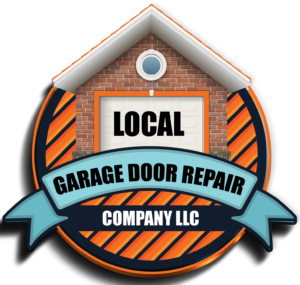Silencing Your Garage Door: Easy Fixes for That Annoying Noise
- COMMERCIAL GARAGE DOOR REPAIR
- GARAGE DOOR OPENER INSTALLATION
- GARAGE DOOR SPRING REPAIR
- SAME-DAY GARAGE DOOR REPAIR
- CUSTOM GARAGE DOOR
- GARAGE DOOR OPENER REPAIR
- GARAGE DOOR TRACK REPAIR
- GARAGE DOOR CABLE REPAIR
- GARAGE DOOR PANEL REPAIR
- LOCAL GARAGE DOOR REPAIR
- GARAGE DOOR REPLACEMENT
- NOISY GARAGE DOOR FIX
- GATE REPAIR
- GARAGE DOOR INSTALLATION
- GARAGE DOOR SECTION REPLACEMENT
- OVERHEAD GARAGE DOOR REPAIR

Silencing Your Garage Door: Easy Fixes for That Annoying Noise
A noisy garage door can be more disruptive than you’d expect. Whether it’s waking up your family during early mornings or sending shivers down your spine every time it operates, no homeowner wants to deal with that grating sound. Luckily, fixing a noisy garage door doesn’t require expensive tools or professional help. With a few straightforward steps, you can enjoy a quieter, smoother operation in no time.
If your garage door has become the loudest part of your house, this guide is for you. Below, we’ll explore the common culprits behind garage door noise and provide simple solutions to fix them.
What Causes a Noisy Garage Door?
Before you can fix the problem, it helps to understand what’s causing it. Here are some common reasons your garage door might be making excessive noise:
- Loose hardware: Over time, bolts, screws, and other fasteners can loosen, leading to vibration and rattling.
- Worn-out rollers: Rollers that have worn down or become misaligned can create a scraping or grinding sound while the door moves.
- Unlubricated parts: Dry hinges, springs, or tracks can screech or squeak when the door is in motion.
- Imbalanced door: If your garage door isn’t properly balanced, the extra tension can cause audible strain on the system.
Once you’ve identified the issue, the fix is usually straightforward.
Easy Fixes for a Noisy Garage Door
1. Tighten All Loose Hardware
Garage doors have lots of moving components, so some wear and tear over time is inevitable. Start by grabbing a wrench or screwdriver and carefully inspect all the nuts, bolts, and screws around the door and track. Tighten any that are loose, but be careful not to overtighten, as this could damage components or restrict movement.
2. Replace Worn-Out Rollers
Rollers help guide the door along its tracks. If yours are worn out, cracked, or misaligned, they could be the reason for that grinding or scraping noise. Replacing them with nylon rollers (which are quieter than metal ones) can be a game-changer. Make sure to follow the manufacturer’s guidance when choosing replacements.
3. Lubricate Moving Parts
One of the simplest and most effective fixes for a noisy garage door is regular lubrication. Apply a garage door lubricant or silicone-based spray to the tracks, hinges, rollers, and springs. Avoid using grease, as it can attract dirt and grime, worsening the issue over time. Lubrication reduces friction, keeping your garage door running smoothly and quietly.
4. Balance the Door
If your garage door is unbalanced, it can put extra strain on the motor and springs, leading to loud noises and potential system failure. Disconnect the opener and manually lift the door halfway. If it doesn’t stay in place, the door is likely unbalanced and should be adjusted by a professional.
When to Call a Professional
While most noisy garage door issues can be fixed with simple DIY solutions, some problems may require professional assistance. If you’ve tried the tips above and the noise persists, it might be time to call a garage door technician who can inspect the system and diagnose more complex issues.
Final Word
A noisy garage door doesn’t just disrupt your daily routine; it can also be a sign of larger underlying issues. By identifying the cause and taking the appropriate steps to address it, you can restore peace to your home and extend the life of your garage door. Local Garage Door Repair Company is here to help with expert services to get your door back in top shape.

